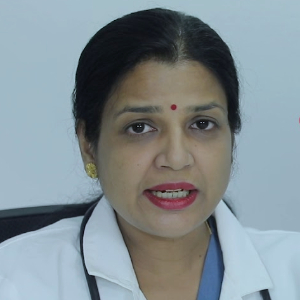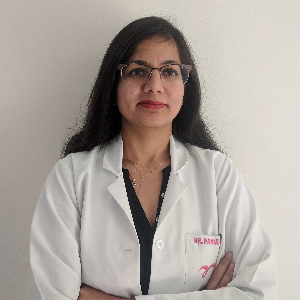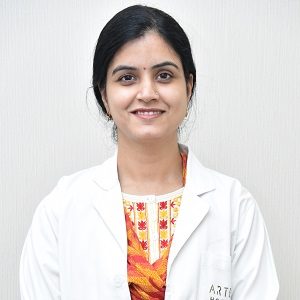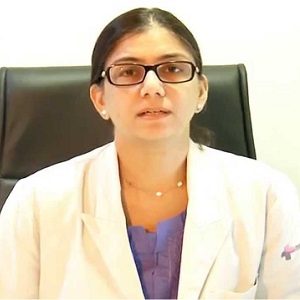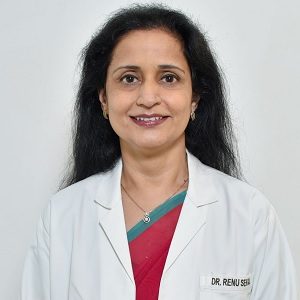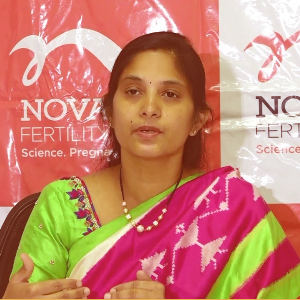Best Doctors in India for Pap Smear Test
- IVF Specialist & Gynaecologist, Bengaluru, India
- Over 15 years’ experience
Profile Highlights:
- Dr. Pallavi Prasad is a well-known Gynecologist in Bengaluru specializing in infertility and IVF.
- Dr. Prasad is a specialist in all kinds of Artificial Reproductive Techniques (ART) including IVF, ICSI, IUI, and IMSI. She also provides services for vitrification and cryopreservation.
- Dr. Pallavi Prasad has also written articles and papers on her field of expertise and has published several columns on infertility and ART in renowned journals and newspapers.
- IVF Specialist & Gynaecologist, New Delhi, India
- Over 20 years’ experience
Profile Highlights:
- Dr. Parul Katiyar is a well-known Obstetrician and Gynecologist in India with expertise in Reproductive medicine and the management of infertility.
- She has close to 2 decades of experience in gynecology and obstetrics and over a decade of experience in infertility and IVF. She provides services for the management of primary and secondary infertility in couples.
- She is experienced in all types of assisted reproductive techniques and has been part of and has assisted in more than 3000 ART cycles of all forms for patients from various parts of the world.
- Obstetrician & Gynaecologist, Gurugram, India
- 20 years experience
Profile Highlights:
- Parvinder Kaur Arora is a renowned Gynecologist, Obstetrician & Laparoscopic Surgeon in Delhi NCR.
- She went under training in Laparoscopic surgery and Gynaec oncology.
- She completed a fellowship in minimally invasive surgery and achieved the first position in the course.
- Obstetrician & Gynaecologist, Gurugram, India
- Over 14 years’ experience
Profile Highlights:
- Dr. Pooja Bhatia Marwaha is a well-known gynecologist and obstetrician in Delhi/ NCR.
- She is proficient in the clinical and surgical management of women’s problems. Her expertise includes Antenatal and Postnatal Exercise, Cancer Screening, Breast Cancer Screening, Menopause, Pre and Post Delivery Care, and Physiotherapy.
- Gynecologist, Gynae-Oncologist, Gurugram, India
- over 22 years’ experience
Profile Highlights:
- Dr. Priyanka Batra is one of the best doctors in India in the Department of Gynaecology and Gynae Oncology.
- Her expertise extends to the subspecialties of laparoscopic surgeries, colposcopy, and minimally invasive surgeries.
- She is a highly qualified doctor and has done multiple diplomas in the specialization of Gynae Oncology.
- Obstetrician & Gynaecologist, Gurugram, India
- Over 15 years’ experience
Profile Highlights:
- Priyanka Mishra is a renowned doctor for Obstetric & Gynecological issues in Delhi/ NCR.
- She has completed MBA in Hospital and Healthcare management from NIBM.
- Priyanka Mishra has used her extensive experience to provide consultation for women’s problems and treatment.
- Obstetrician & Gynaecologist, Gurugram, India
- Over 25 years’ experience
Profile Highlights:
- Dr. Renu Raina Sehgal is a renowned Gynecologist in Delhi/NCR, having 25+ years of rich experience in the field.
- Dr. Renu Sehgal specializes in obstetrics, menopause, infertility, and advanced gynecological laparoscopy and has extensive experience in several other gynecological procedures. In addition to this, she is an expert medico-legal consultancy.
- IVF Specialist, Gynaecologist & Obstetrician; Mumbai, India
- Over 10 years’ experience
Profile Highlights:
- Dr. Ritu Hinduja is a renowned Infertility expert in Mumbai with experience in the management of infertility and reproductive medicine and has training in all assisted reproduction techniques (ART).
- She holds a Masters degree in Reproductive Medicine and also has a Diploma in the same field from Keil University in Germany.
- Dr. Hinduja’s primary interest lies in the management of patients with fertility issues that include low ovarian reserve and preserving fertility for cancer patients and women who want to delay childbearing by freezing eggs.
- Gynecologist, Gynae-Oncologist, Gurugram, India
- Over 30 years’ experience
Profile Highlights:
- Dr. Sabhyata Gupta is one of the first and best gynecologists in India to perform robot-assisted surgery for gynecological patients who are affected with cancerous and non-cancerous conditions.
- She received multiple awards for her enormous contribution to the field of Gynae Oncology.
- IVF Specialist and Gynaecologist, Hyderabad, India
- Over 15 years’ experience
Profile Highlights:
- Dr. Saroja Koppala is an expert Gynecologist and Obstetrician who is highly trained and experienced in all forms of ART and has helped in achieving a large number of successful pregnancies.
- She received most of her trainings in infertility and reproductive medicine from prestigious fertility clinics in the UK and has also spent a considerable amount of time in practicing at several renowned hospitals.
- Dr. Koppala finds interest in the management of women with recurrent miscarriage, repetitive implantation failure, failed IVF cycles, endometriosis, adenomyosis and low ovarian reserve.
Best Hospitals in India for Pap Smear Test
MGM Healthcare, Chennai
- City: Chennai, India
Hospital Highlights:
- Located in Chennai, India, MGM Healthcare is a top multispecialty hospital that provides all medical services under one roof.
- Since its founding in 2019, MGM Healthcare has quickly become a leading national referral centre, creating several innovative flagship initiatives.
- MGM Healthcare combines next-generation medical and digital technologies to provide better patient results.
- With 12 centres of excellence, more than 400 inpatient beds, 100 intensive care unit beds, and 24/7 emergency care, MGM Healthcare leaves no chance in redefining the patient experience in Chennai.
- MGM Healthcare boasts 250+ expert doctors across 30+ departments, including Cardiology, Pulmonology, Neurology, Obstetrics & Gynaecology, and more.
- They house 12 specialized Centres of Excellence, including Neurosciences, Orthopaedics, and Multi-Organ Transplantation.
- Their team of doctors, nurses, and paramedics works together to give every patient individualized treatment.
Pap Smear
Pap smear also termed as Pap test, is a procedure for testing cervical cancer in women. It involves collecting cells from the cervix, which is the lower narrow end of the uterus, which lies at the top of the vagina.
Detecting the cancer early on, with a Pap smear, gives one a greater chance of curing it. This procedure can also detect changes in your cervical cells that may suggest cancer developing in the near future. A Pap smear can easily help you detect any abnormal cells, which is your first step in stopping the possible development of cervical cancer.
Purpose
The purpose of Pap smear is to screen for cervical cancer.
Regular Pap smears are recommended for women every three years from the age of 21. For women who are HIV-positive or those having a weakened immune system from chemotherapy or organ transplant, it is needed more frequently.
This procedure is usually done in conjunction with a pelvic exam. For women who are older than the age of 30, the Pap test can be combined with a test for human Papillomavirus (HPV) – a common sexually transmitted infection that can lead to cause cervical cancer. The HPV test may be done instead of a Pap smear in a few cases.
Women who are aged 30 and older may consider Pap testing every five years if the procedure is combined with HPV testing. Or they can also consider HPV testing instead of the Pap test.
Your doctor may recommend more frequent Pap smears, regardless of your age, if you have certain risk factors such as:
- A Pap smear that showed precancerous cells or a diagnosis of cervical cancer
- HIV infection
- Exposure to diethylstilbestrol (DES) before birth
- A history of smoking
- Weakened immune system due to chemotherapy, organ transplant or chronic corticosteroid use
You should discuss the benefits and risks of Pap smears with your doctor and decide what’s best for you based on your risk factors.
There are certain situations in which a woman and her doctor can end Pap testing such as:
After a total hysterectomy: After a total hysterectomy, surgical removal of the uterus including the cervix, you can ask your doctor if undergoing Pap smears is still required.
You will likely be able to discontinue Pap smears, if your hysterectomy was performed for a noncancerous condition, such as uterine fibroids.
However, if your hysterectomy was for a precancerous or cancerous condition of the cervix, it is likely that your doctor will recommend continuing routine Pap testing.
Older age: It is generally agreed by doctors that women can choose to consider stopping routine Pap testing at the age of 65 if their previous tests for cervical cancer have been negative.
You can discuss your options with your doctor and together you will be able to decide what’s best for you based on your risk factors. Your doctor might recommend you to continue with the tests if you are sexually active.
Preparation
You should follow these tips prior to your test for ensuring that your Pap smear is most effective:
- Avoid intercourse, douching as well as any vaginal medicines or spermicidal foams, creams or jellies for a minimum of two days before the Pap smear, as these may cause abnormal cells to be obscured or washed away.
- It is better if you don’t schedule your Pap smear during your menstrual period.
During the Procedure
A Pap smear can be performed in a doctor’s office and it takes just a few minutes. You might be asked to fully undress or only from the waist down. You will need to lie down on your back on an exam table with your knees bent.
First, your doctor will be gently inserting an instrument called a speculum into the vagina. This holds the walls of your vagina apart so that your doctor is easily able to see your cervix. You might experience a sensation of pressure in the pelvic area while the speculum is being inserted.
Then your doctor will need to take samples of your cervical cells with the use of a soft brush and a flat scraping device which is called a spatula. This usually does not hurt.
After the Procedure
After the procedure is complete, you can resume your normal activities without any restrictions.
Depending on the type of procedure you’re undergoing, your doctor will transfer the cell sample collected from your cervix into a container that holds a special liquid to preserve the sample. He/she might also use a glass slide.
Then the samples are transferred to a laboratory where they are examined under a microscope in order to look for characteristics in the cells which can indicate cancer or a precancerous condition.
After this, the samples are transferred to a laboratory. Here they are examined under a microscope to look for characteristics in the cell that can indicate cancer or a precancerous condition.
You can ask your doctor regarding how long you will need to wait before the results of your test are out.
Results
The results of your Pap smear can either be normal or abnormal.
Normal Pap smear- If the results are normal, this means that there were no abnormal cells identified. The normal result is also termed as negative. If your result is normal, you won’t be needing this test again for at least three years again.
Abnormal Pap smear- However, if the test results are abnormal, you need not worry, as this doesn’t necessarily mean that you have cancer. It just means that there are cells in your cervix which are abnormal and some of them may be precancerous.
Abnormal cells are of several levels:
- atypia
- mild
- moderate
- severe dysplasia
- carcinoma in situ
Milder abnormal cells are generally more common as compared to severe abnormalities.
Depending on your results, your doctor might recommend:
- increasing the frequency of your Pap smears
- getting a closer look at your cervical tissue using a procedure termed as Colposcopy
During a colposcopy exam, your doctor will take the help of light and use magnification to see the vaginal and cervical tissues more clearly. In some cases, they can also take a sample of your cervical tissue in a procedure termed as a biopsy.

